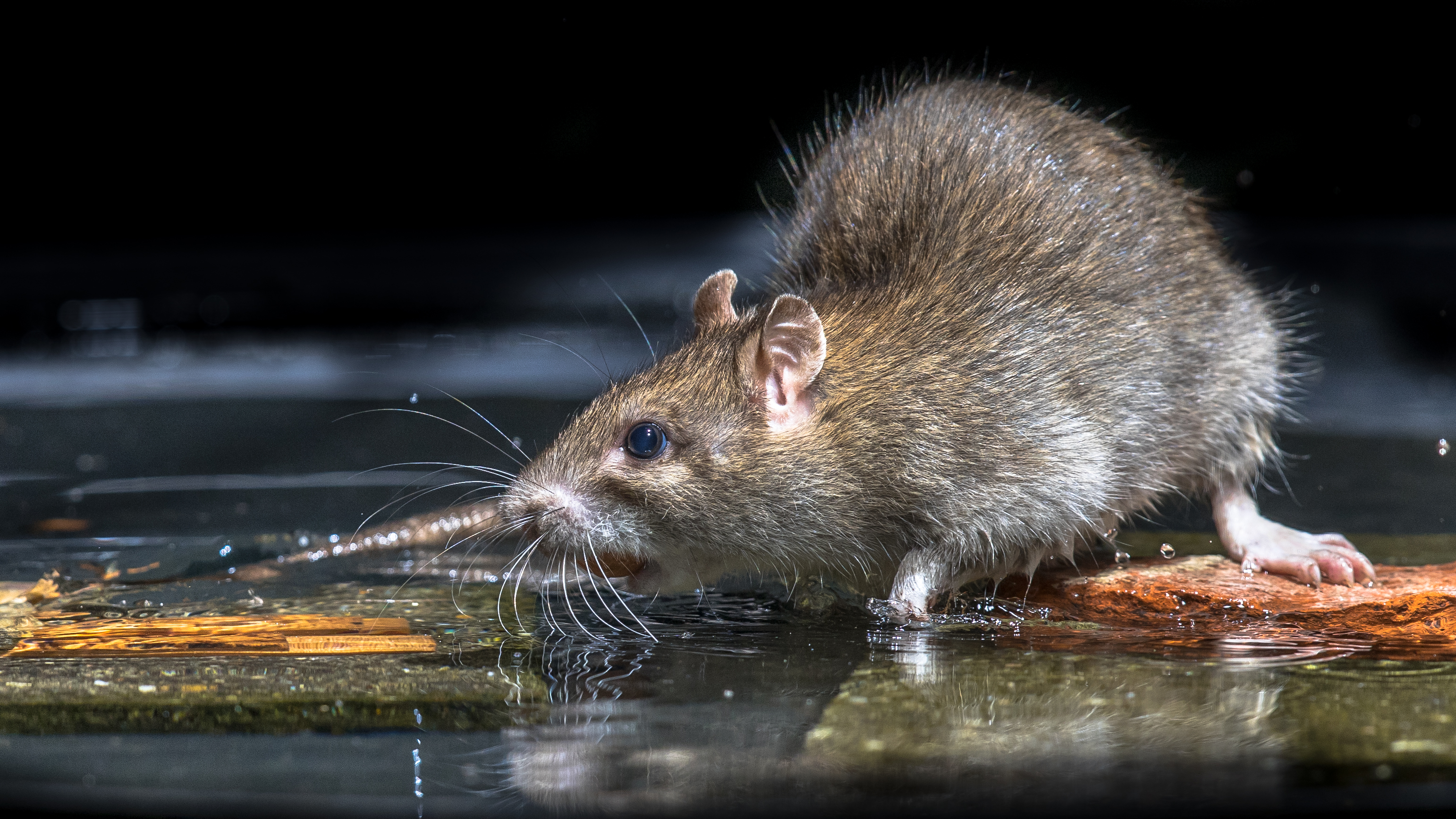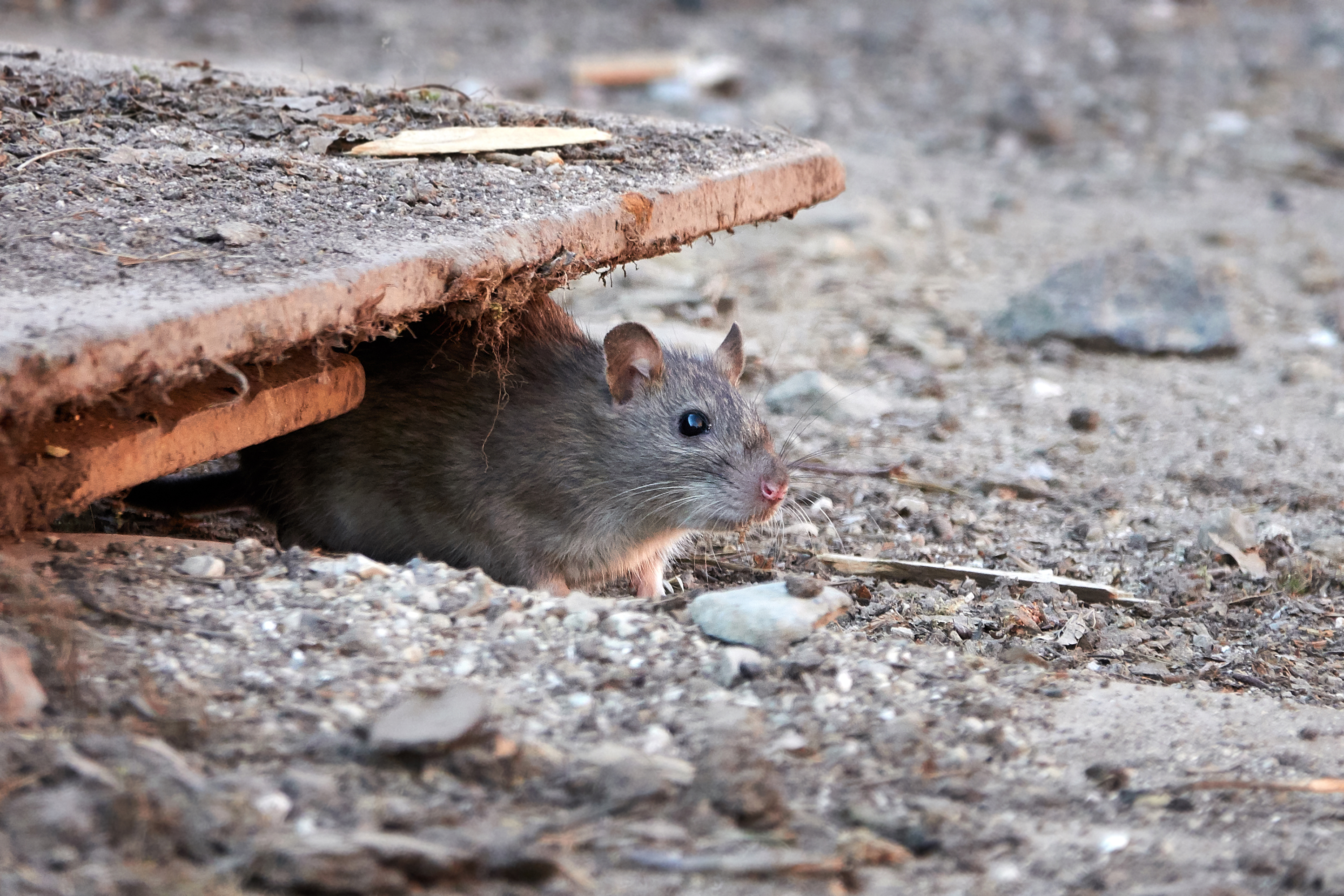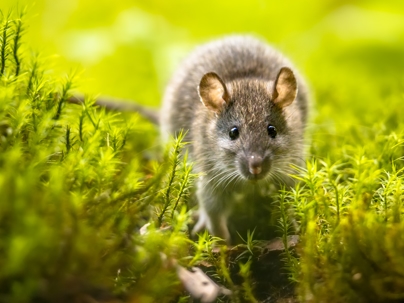
Rats have followed human civilization since the Agricultural Revolution over 10,000 years ago, and they’ve come with us from the Fertile Crescent all the way to the Natural State. Of all the pests that call Arkansas home, none are smarter than the rat. Associated throughout the world with traits ranging from cleverness and ambition to greed and revulsion, few pests have the notoriety of the rat. They’ve earned their tenacious reputation, and those smarts are the reason– their cautious nature makes them difficult to trap. A major infestation can take weeks to eliminate. To better understand the difficulties of ridding your home of rats, it’s important to understand their seasonal movements, their behavioral patterns, and ways to prevent them from taking over your home in the first place.
Even Rats Get the Summertime Blues
Most pest control agencies stress that rodent issues increase in the fall as cooler temperatures drive the little guys indoors. They’re correct, fall and winter are peak seasons for rodent calls. What many neglect to mention is that, in Arkansas and other similarly hot states, it’s not the only time. That’s right– it’s so hot in Arkansas that rats are driven indoors in the peak of summer, when outdoor food is abundant, just to keep cool! You enjoy your air conditioning, and they do too. Rats are known to enjoy the relative cool of crawlspaces, too. It’s better to think of rats reacting to extremes in temperature, both hot and cold. If you’ve had a rodent problem in the past, don’t assume that you’re in the clear just because the weather is warm– new populations can always find their way back in!

Think Like A Rat
To catch a pest, it’s beneficial to think like one. Rats are clever, capable of pattern recognition and problem solving, with a pretty good memory to boot. This makes them difficult to control because they’re tenacious little problem solvers! For comparison, mice are pretty smart, but they’re terminally curious. They’ll thoroughly investigate any change to their immediate environment, so they’re pretty easy to trap. Rats, on the other hand, have a natural cautiousness. When a trap or bait box is added to their environment, rats are very suspicious. They’re also communicative, and learn from the mistakes of other rats in their mischief (yes, a group of rats is called a mischief!). This means that when we’re treating a rat infestation we have to get creative, switching up our tactics across several appointments. That’s no sweat, though, we’re trickier even the trickiest of rats!
Fun Fact: Do you have a cat? You actually have rats to thank. As humans began to store grains during the agricultural revolution, they began to have issues with mice and rats scavenging from their harvests. Cats naturally gravitated toward these areas with increased rodent populations. Humans were quite happy to have an ally in the war against rodents, and the rest is history! Everywhere we’ve gone, rats have followed– and the cats have too!
Rat-Proofing Your Home
They say an ounce of prevention is worth a pound of cure, and that’s especially true in pest control. Once rats have invaded a home, it can be a difficult, weeks-long journey to get them out. They can do expensive damage to a home in a short time. Rats are known to chew through wiring, roofing materials, wood, and even brick! Now for the good news: it takes only a few small adjustments to prevent them from becoming an issue in the first place.
Though no home is perfectly sealed, older homes tend to have more entry points for rats to enter. Adult rats are capable of squeezing into holes around the size of a quarter, so there’s usually plenty of places for them to enter a home. In areas that have established rat populations, like Fayetteville, even well-maintained homes can become infested with rats. It’s best to take a two-pronged approach: limit attractants and seal entry points. To limit potential food sources for rats, keep trash cans and other potential food sources far away from the foundation of your home. Seal garbage storage containers as well as possible. As for entry points, examine any areas where the interior of your home is linked to the outside: doors, windows, plumbing, HVAC, floor drains, attics, crawlspaces, and basements are all common entry points. If you can’t immediately fix these issues, steel wool can be stuffed into gaps or crevices for a quick fix until proper repairs are performed.

Smart Pest Control is Safety First
When treating rat infestations, chief among our concerns is creating safeguards against exposure to non-target animals and secondary poisoning. Non-target animals are anything besides the targeted pest. We want to make sure that only rats access the rodenticide or traps. We accomplish this by using locked bait boxes, which only our technicians can access with a special key, and placing our traps strategically.
Secondary poisoning occurs anytime an animal eats another animal that’s been exposed to poison. It’s very rare that a rodent eats enough rodenticide that its body becomes toxic to a predator, but it can happen. Secondary poisoning almost never occurs with household pets, but keeping an eye on your furry friends while undergoing rodent services is a good precaution. If you think your pet has consumed a poisoned rodent, take them to the vet. The vet will likely administer a Vitamin K shot, since most rodenticides work by disrupting the way rats process the vitamin. Be advised that good pest control companies will take great pains to limit haphazard exposure to their product, and they’ll never use more than is necessary to treat an infestation!
Conclusion
Rats have been with human civilization about as long as it’s existed, and it’s likely they’ll always be with us. Though they’re old rivals of ours, the correct amount of rats to have in your home is zero. If you are dealing with scratching in the walls, chewed-through wiring, and all the other headaches that come with a rat issue, have no fear. The professionals at Natural State have a few tools at their disposal: traps, bait, and old fashioned cleverness to catch them out. Reach out to our office at 479-777-0864 to get a free quote for rodent services.

